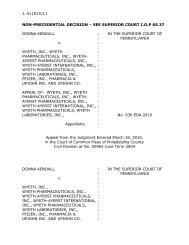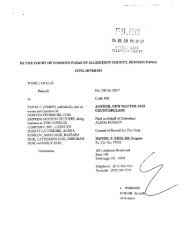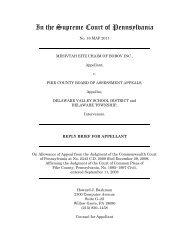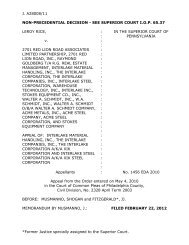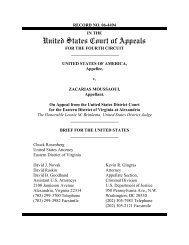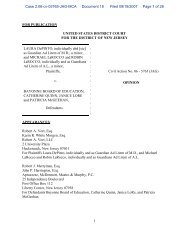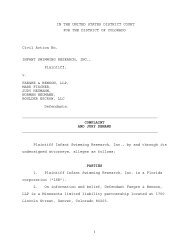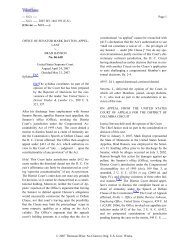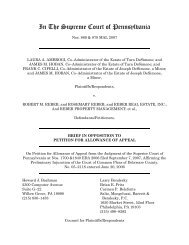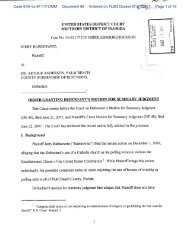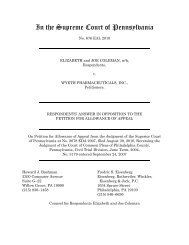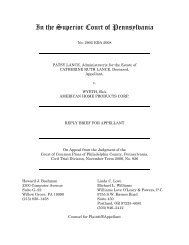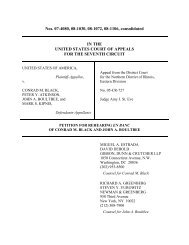Stone v. Bear, Stearns & Co., Inc. - How Appealing
Stone v. Bear, Stearns & Co., Inc. - How Appealing
Stone v. Bear, Stearns & Co., Inc. - How Appealing
Create successful ePaper yourself
Turn your PDF publications into a flip-book with our unique Google optimized e-Paper software.
Case 2:11-cv-05118-LDD Document 22 Filed 05/29/12 Page 28 of 35<br />
violation of FINRA rules, even unknown by FINRA at the time of the arbitration, into grounds for<br />
vacatur. This would run counter to the policy in this country favoring the finality of arbitration<br />
awards, as well as the Supreme <strong>Co</strong>urt’s recent admonitions in Hall Street that “exceed[ing] . . .<br />
powers” in Section 10(a)(4) is a species of “extreme arbitral conduct,” 552 U.S. at 586, and<br />
Stolt-Nielsen that Section 10(a)(4) attacks must fail unless the “arbitrator strays from interpretation<br />
and application of the agreement and effectively ‘dispense[s] his own brand of industrial justice.’”<br />
130 S. Ct. at 1767 (citation omitted).<br />
Finally, <strong>Stone</strong> does not object to the selection of the two arbitrators other than Marston. <strong>Stone</strong><br />
has provided no evidence, or even argument, that Marston improperly influenced or prejudiced either<br />
other arbitrator against <strong>Stone</strong> or in favor of Respondents. Because the three-person panel<br />
unanimously denied <strong>Stone</strong>’s claims, Marston’s presence on the panel, even if improper under<br />
FINRA’s “public arbitrator” definition, did not prejudice <strong>Stone</strong> and does not mandate vacatur under<br />
Section 10(a)(4). See Winfrey v. Simmons Foods, <strong>Inc</strong>., 495 F.3d 549, 552-53 (8th Cir. 2007)<br />
(affirming district court’s rejection of challenge to arbitration award because petitioner produced “no<br />
evidence indicating that [one arbitrator’s] partiality deceived or misled the other two arbitrators,” so<br />
alleged partiality of one arbitrator worked no prejudice); Tamari v. Bache Halsey Stuart <strong>Inc</strong>., 619<br />
F.2d 1196, 1200-01 (7th Cir. 1980) (rejecting evident partiality challenge to unanimous arbitration<br />
decision, in part because “[s]imple mathematics indicates that the particular composition of the panel<br />
should not have mattered under these circumstances.”); Fort Hill Builders, <strong>Inc</strong>. v. Nat’l Grange Mut.<br />
Ins. <strong>Co</strong>., 866 F.2d 11, 14 (1st Cir. 1989) (rejecting challenge to arbitration award because “the panel<br />
decision was unanimous for plaintiff, and defendants alleged no wrongdoing on the part of the other<br />
two members.”); <strong>Co</strong>nt’l Cas. <strong>Co</strong>. v. Staffing <strong>Co</strong>ncepts, <strong>Inc</strong>., No. 8:09–CV–02036, 2011 WL<br />
28



